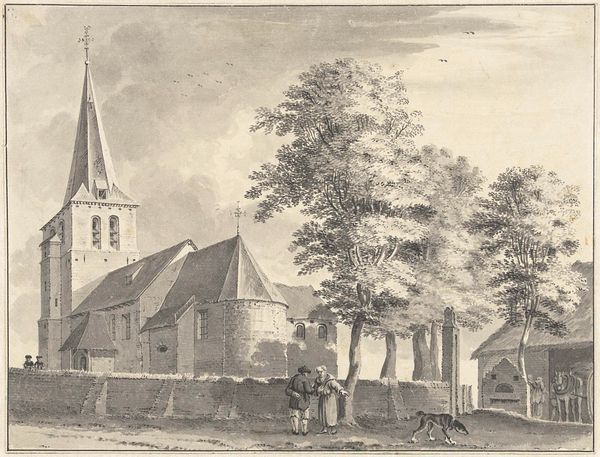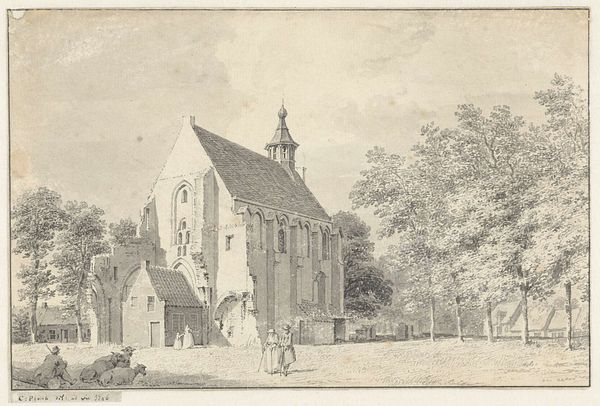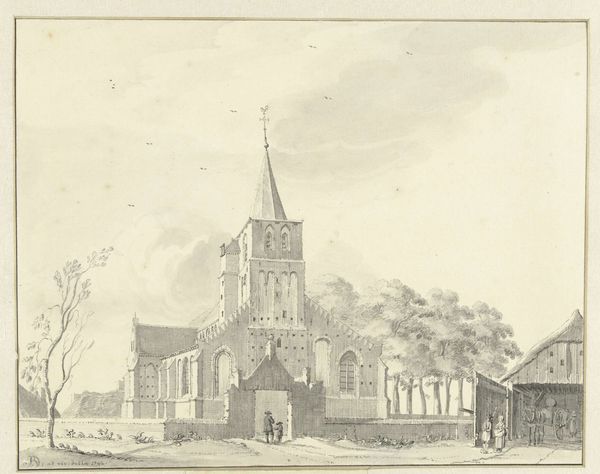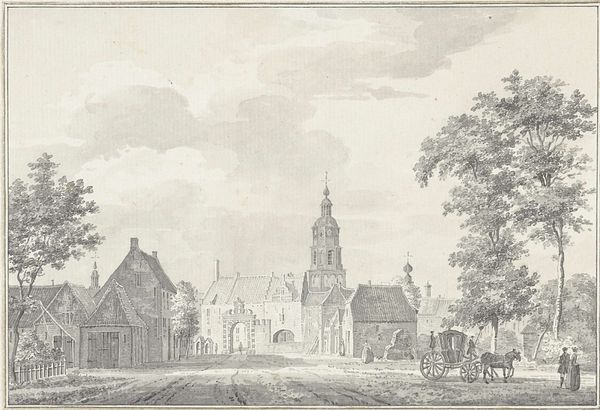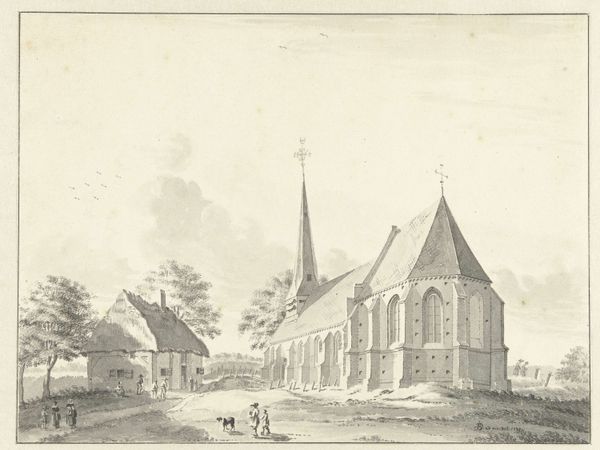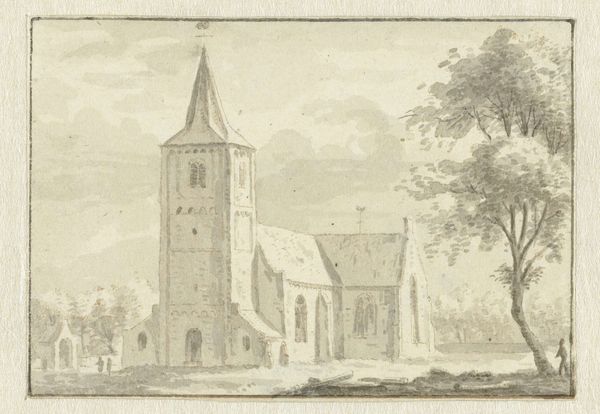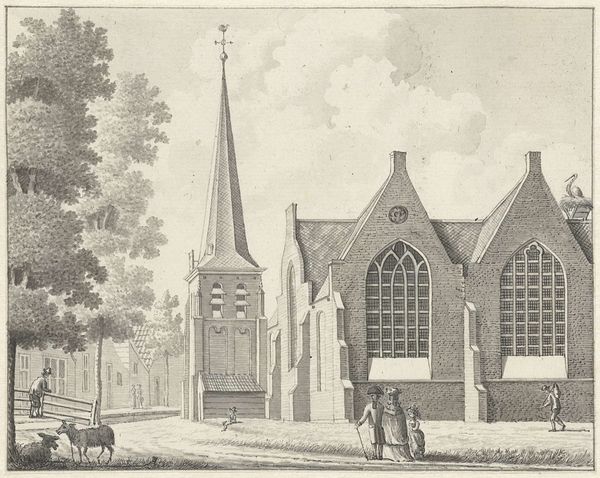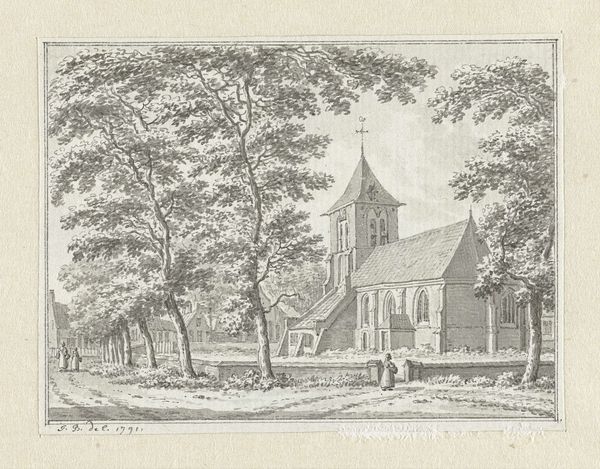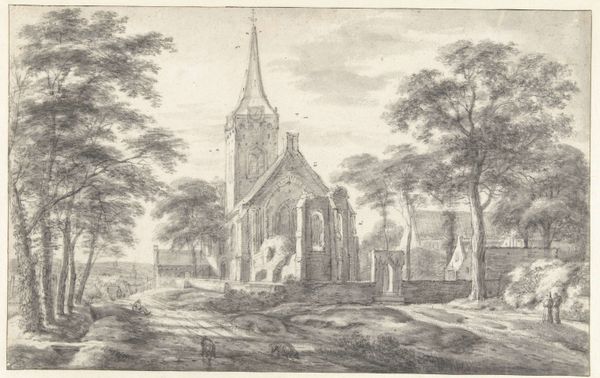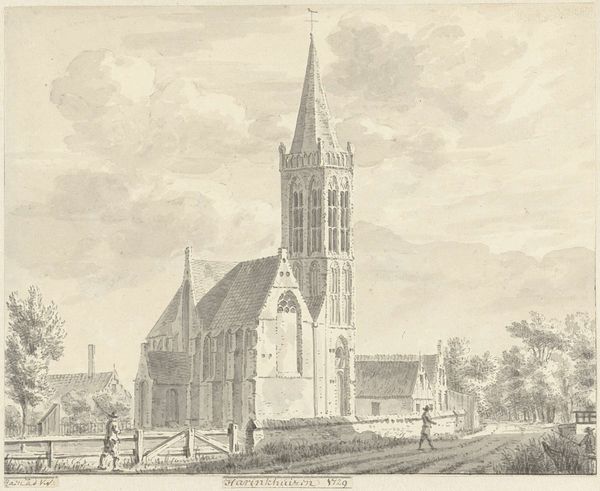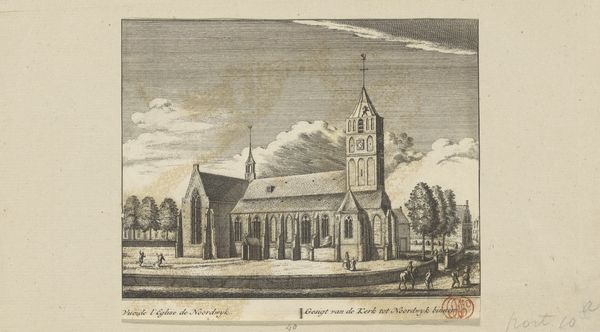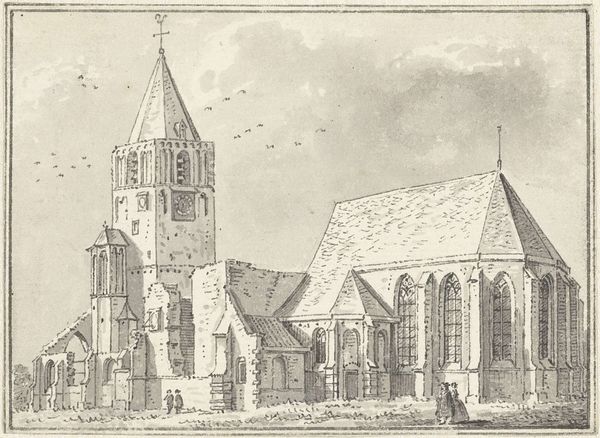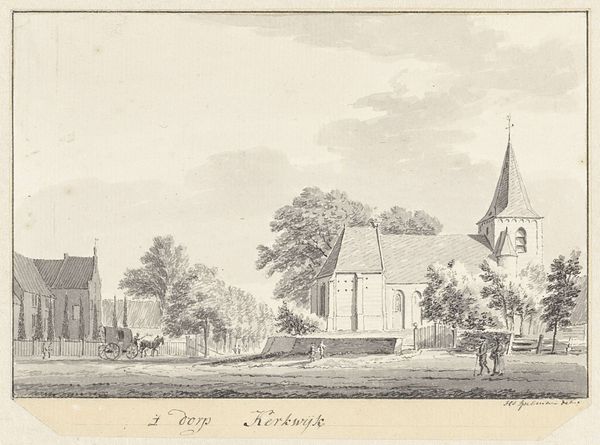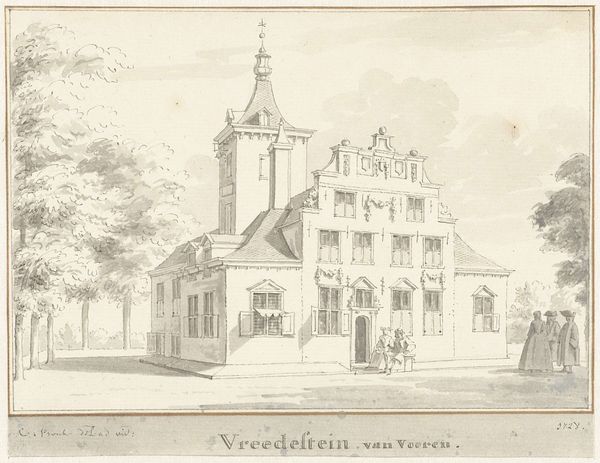
drawing, pencil
#
drawing
#
dutch-golden-age
#
pencil sketch
#
landscape
#
pencil
#
cityscape
#
northern-renaissance
#
realism
Dimensions: height 119 mm, width 185 mm
Copyright: Rijks Museum: Open Domain
Abraham de Haen the second created this pen and brown ink drawing of the village church of Weurt. Born in Amsterdam, he was a Dutch artist known for landscapes and architectural studies. Consider the rise of Dutch topographical art during the 18th century. The artist documented the landscape through the lens of social and political shifts. The architecture of the church and its surrounding environment offer insight into the community's values and social structures. The church, as the focal point, emphasizes the centrality of religion in community life. The figures are secondary. De Haen's composition invites us to consider the relationship between people, their environment, and their communal spaces. What stories do these silent structures tell about the communities that built them? Can you see the architecture as a reflection of both spiritual beliefs and social hierarchies? As you consider these questions, think about the role architecture plays in shaping our experiences.
Comments
No comments
Be the first to comment and join the conversation on the ultimate creative platform.
